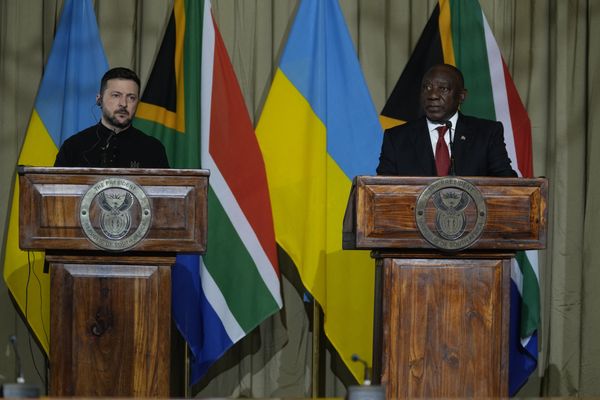
A navy supply boat has been left out of service for about a year after its shaft was found to be crooked.
Australia's chief of navy says he is disappointed that HMAS Supply was delivered with defects that took it out of the water for an extended period.
"I am not satisfied with the availability of this ship," Vice Admiral Mark Hammond told a parliamentary hearing on Thursday.
"There are defects in the design and delivery of the ship, the ship remains under repair."
The vice admiral said he looks forward to receiving a "fit-for-purpose ship at an appropriate time", adding he was satisfied with the response from Spanish shipbuilder Navantia.
"That's the best we can do at the moment, is to work on the repair in concert with the shipbuilder," he said.
"They are not shirking any responsibility for paying for this."
A shaft that ran from the engine to the propeller was an important piece of a ship to get right the first time, Greens senator David Shoebridge contended.
"Certainly it is," head of maritime sustainment Steve Tiffin replied.
The ship is expected to be out of the water until at least 2025 with the worst-case scenario for a new shaft, which comes in at 15 metres long and 19 tonnes, taking around 40 weeks to arrive from Europe.
Navantia had accepted liability and was helping fix the ship under warranty but Australia would not be compensated for the hit to its naval capability, Adml Hammond said.

"You didn't check the shaft was pointing in the right direction before you picked the ship up," Senator Shoebridge contended.
Australian officials couldn't inspect the ship during its construction in Spain due to the COVID-19 pandemic and its alignment was a very complex process with small margins for error, the navy chief said.
The issue was discovered during a review of its A-bracket bearing, which also had to be replaced, when problems with the shaft's rake and slope were then found.
It remains under repair at Garden Island in Sydney.
The contract for two supply ships and infrastructure requirements cost taxpayers $1.3 billion.







